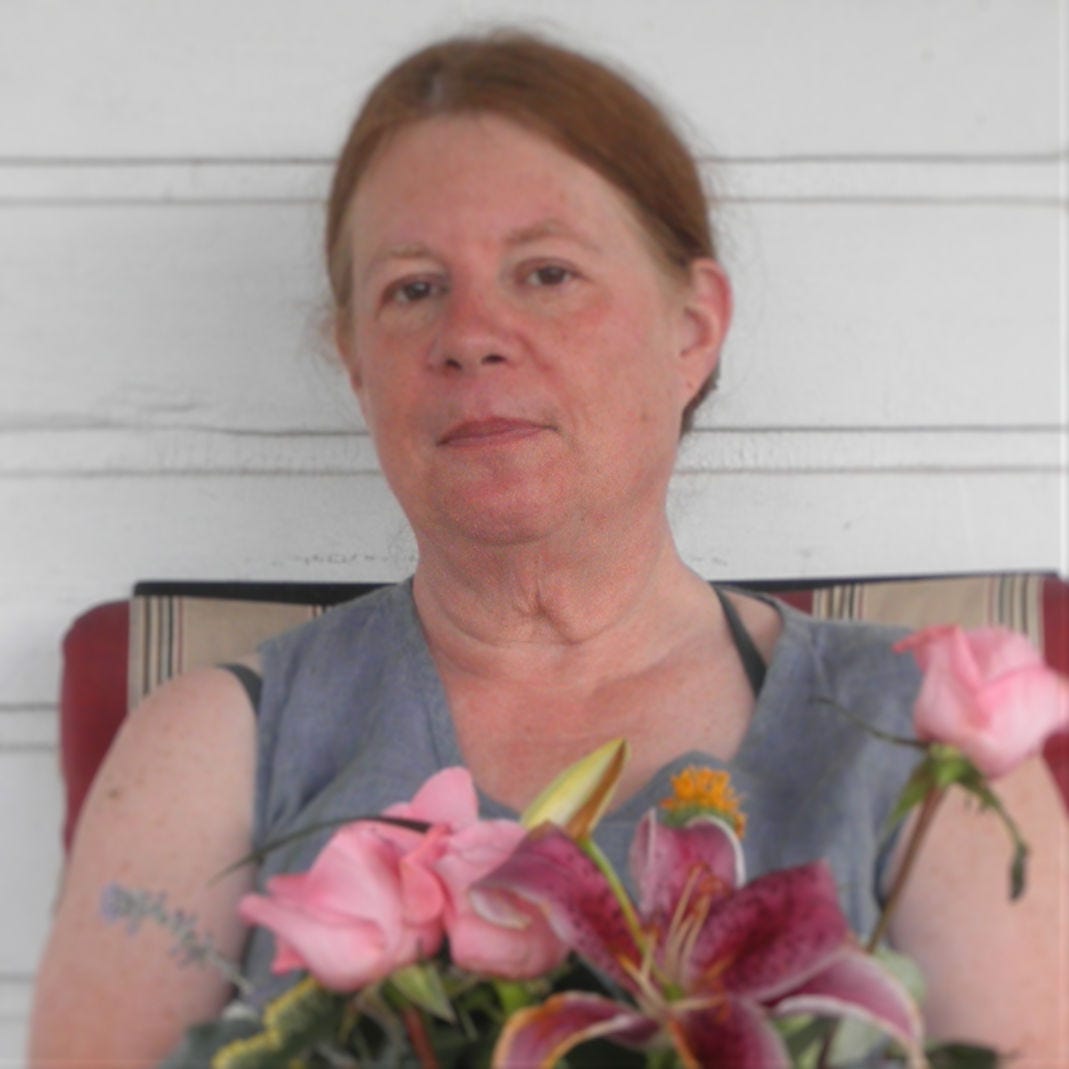For two years I had the privilege of working with mentally and physically disabled adults.
In 1998 I was hired full time at Devereux Foundation, a huge mental health organization with facilities in and around Philadelphia. I was assigned to the Berwyn campus which was located along Philadelphia’s Main Line; I was given a caseload of “at risk” children and their families to counsel and work with.
On the Berwyn campus Devereux maintained group homes where mentally and physically challenged adults lived; these individuals varied a lot in terms of their abilities to function in the “real world.” There existed what I’d call a “mixed bag” of disabilities; most were non-verbal, some could not walk without the assistance of a “walker.” Artie, highly functional, held a job at McDonald’s of which he was very proud, but required the shelter and protection of the “home.” Others were incontinent, one screamed uncontrollably, another repeatedly burrowed into others’ belongs and hid them, and another was legally blind. One young man unforgettably earned the diagnosis of “atypical psychosis.”
I quickly found out that there were several of these group homes on the Berwyn campus, and that these places always needed people to fill in various shifts. These group homes were “always open” and there were overnight shift hours available constantly. Also, the open hours existed on the weekends; the work encompassed helping the clients with dressing, making meals for them, administering their many medications, and taking them out for breaks in their routines. Dealing with incontinence was a fact of life in this job. There was always laundry to do and food shopping as well. Taking on several shifts a week was a good way to earn extra money. But money was only a small part of this experience.
Up until then I had no contact with these men and women who everyone—their families especially—wanted to forget. But immediately I liked this second job. I was speaking to somebody just yesterday about this and I was told that I “had a heart for this work,” and this is true. I had patience with the clients, I talked to them when I could, I laughed with them, and I had fun with them. One of my favorite parts of doing this work was loading all of the residents into one of Devereux’s super-sized vans and taking them places. Doing the weekly food shopping with them was a joy; they all loved finding needed items and placing them in our shopping cart. It was quickly obvious that any activity that made them feel “part of this world” was attractive and exciting.
Why did I love this job so much? I was a newly graduated Masters’ degree student and this could be considered manual labor! This is where one of my favorite Yiddish words “rachmones” comes in. It is from the Hebrew “rekhem” which means “a mother’s womb.” Notice: it is not “pity.” It is compassion and empathy. A fine line, I realize, but it exists. The love I felt for these severely sequestered individuals, most of them abandoned by their families, came from the heart.
Joe, who has a major part of this memoir, lived in one of the group homes and his behavior was flawless except for one thing; he couldn’t stop talking. He couldn’t communicate in the “normal” way; he just talked. Nobody knew why. If you signed up for an eight hour shift at Joe’s home, you had to really psych yourself up for Joe’s literally constant babbling. Sometimes, tears in our eyes, we begged Joe to be quiet. He could keep it together for about five minutes, but then he was off again, talking about everything and anything. He was a lovely man and the thing he was drawn to above all else was the Catholic Church and Jesus. If somebody mentioned Jesus and Catholicism he would begin to cry, not with pain but with longing.
The other resident who takes a role in this memoir is a young woman named Ashley. Ashley was somewhat functional but was what used to be called “highly neurotic” and “high strung.” She could be taken to the local YMCA to swim and to exercise, she liked to go shopping, she loved, as all the residents did, to eat out. But for no reason she would suddenly cry stormily and want to hide herself away; among the people I grew up with this would be called a “conniption fit.” She took a small pile of pills—what everyone called “meds”—every day. This lost girl had few friends among the workers at Devereux. She could be quite annoying, it was true. But I came to love Ashley and she loved me too. Sometimes on Saturdays when the 3 pm – 11 pm shift was unstaffed along with the 11 pm – 7am one, I would sign up for the double shift and spend the hours with Ashley, talking, shopping, eating, watching television. I was available to meet any of Ashley’s night needs. We are somewhat alike in looks—we both have red hair—and could be taken for sisters.
I believe that I have a Jewish heart; because I was the only Jewish person on staff I would sign up for Palm Sunday and Easter Sunday shifts as a mitzvah to allow my co-workers a chance to attend church and be with their families. One year, in the spring of 2000, upon taking the Palm Sunday shift, I was told that both Ashley and Joe wanted to go to church that day.
I pride myself on my open-minded attitude about other religions and I’ve read a lot of books about them, but I quivered at the thought of going to a church service with Ashley and Joe. Partly, it was Joe’s talking that worried me. The church would be full of people and I could just imagine the scene: the priest conducting the service, everybody there wanting to pay attention, Ashley, looking forward to Palm Sunday, having her Sunday ruined and crying while Joe talked loudly about floor wax, dogs, television, and shoes.
I went to Joe on the Friday before Palm Sunday.
“Joe, I know how much you want to go to church on Sunday.” (Joe began to cry and tell me how much he loved Jesus) but I asked him to stop crying and listen.
“Ashley will be coming with us. The church will be full of people just like you who were looking forward to going to church. You absolutely must be perfectly quiet during the service. You cannot talk. It’s important, Joe. If you start talking you’ll ruin church for everybody.”
I thought this was useless. How many times had we begged him to be quiet in the past? However, I was to learn that he knew what I was talking about. Oh yes, he understood. Society consistently underestimates the capabilities of these “rejects.”
Palm Sunday came and as I drove over to Berwyn I felt anxious. I made up a disaster plan that I would use if Joe babbled during the service. Yes, Ashley would be upset—very much so—but I would take the two of them to McDonald’s, and I would not castigate dear Joe. I would hug Ashley and promise her that I would indeed take her to church, just the two of us, next Sunday, on Easter.
We walked into the church and stood in the doorway. Ashley and Joe let me know that they wanted to sit in the front pew. A lot of phrases came to mind—“in for a penny, in for a pound,” “when you’re falling, dive,” “may as well be hung for a sheep than hung for a lamb.” We took our front pew seats. I sat between Joe and Ashley, holding my breath, waiting for Joe to start babbling…
And it was beautiful. Joe was silent, and a lovely silence it was, not strained but elevated. Ashley was calm and serene. I listened to the words and prayers spoken and I experienced an intense, un-looked- for moment of happiness—not belonging, like you feel in a synagogue. No, it wasn’t “my” holiday because I am a Jew but maybe it could be everybody’s holiday?
Not wanting to tinker with my own inner workings, I allowed myself not to struggle or to ponder. There would be time for that later, I told myself, but that time never came. I carry around that moment of complete joy in my heart and soul.
After the service was over we stood up. There was a family sitting behind us and this woman said to me: “You have a lovely family.”
I said thank you.
Leslie Golding Mastroianni had a Bachelor of Arts degree in English Literature and Master of Education in Counseling. As a counselor, she worked at the Devereux Foundation in suburban Philadelphia and several other community and family-based mental health facilities. She has been writing since the year 2000. Her novel, Buying A Year, was published in 2004. She is a teacher and shares informal talks and lectures on writing to children’s groups, adolescents, and retired people living in various homes and facilities.





Oh Leslie that was so beautiful. Because I also know how completely people often underestimate folks like your friends Joe and Ashley, as I read I knew that your Palm Sunday experience would be wonderful. How nice to read a happy ending to a beautiful story.
Beautiful.